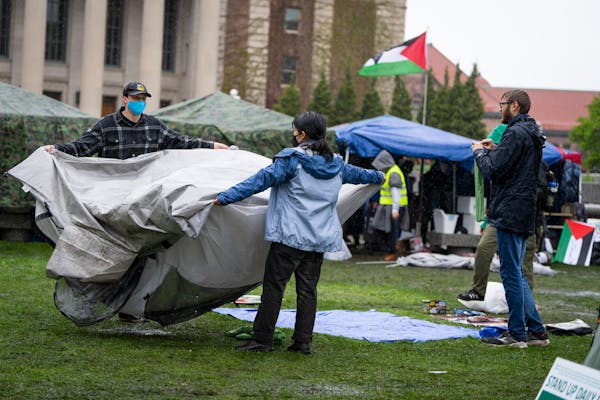Northwest Minnesotans created the snowmobile industry. Now leaders in the region want to join forces with North Dakota to pioneer the commercial use of drones throughout the nation's airspace.
With ambitions to develop a drone technology cluster, dozens of representatives from agriculture, aviation and higher education are meeting Tuesday in Thief River Falls with government authorities including Sen. Al Franken and Rep. Collin Peterson to talk about ways to collaborate and promote the region as a center for the unmanned aircraft industry.
The Federal Aviation Administration in December named North Dakota one of six national test sites for unmanned aircraft. The site, based in Grand Forks, is working to figure out how to safely integrate drones into airspace with conventional aircraft.
It may take a while to figure out, said Robert Becklund, director of the test site, but agriculture will likely be the first industry to adopt drones for widespread commercial use, and the Red River Valley is a natural fit for the research.
"Agriculture's the biggest business on both sides of the border here," he said. "This whole region is a perfect place to do this stuff,"
Military pilots at Grand Forks Air Force Base already are flying drones over Afghanistan, the U.S.-Canada border and North Dakota. The colleges in Grand Forks and Thief River Falls offer four important types of training for operating drones — programs for pilots, sensor technicians, maintenance techs and geospatial analysts.
"If you were to do an unmanned operation, those are four critical check boxes you would need to check," said Dan Klug, chief development officer at Northland Community and Technical College in Thief River Falls. "With our neighbors to the west, there is a critical mass occurring in this industry that is creating a region of excellence."
The meetings Tuesday will take place at Northland, home of the nation's first accredited unmanned aircraft maintenance training program and the first two-year degree in geospatial analysis. Combined with drone pilot and sensor technician training programs 50 miles to the west at the University of North Dakota, officials like Klug and Becklund argue that the region is well-positioned.
Franken and Peterson will tour Northland's aerospace programs, get an overview of the FAA's Northern Plains Unmanned Aircraft Systems Test Site, and discuss training and research opportunities in precision agriculture and geospatial intelligence.
The FAA does not yet allow commercial use of drones, but real estate agents already are using them to take photos of homes, and agribusiness is keenly interested in using unmanned aircraft to analyze fields and crops. The FAA's new test sites in North Dakota, New York, Virginia, Texas, Nevada and Alaska will not only work on safe integration of drones into the national aviation system, but also help come up with standards for pilots of commercial unmanned aircraft.
Companies from Northrop Grumman to farm cooperative CHS Inc. are on the guest list for the meetings in Thief River Falls. The Minnesota Assocation of Wheat Growers, Minnesota Department of Transportation, University of Minnesota and several other colleges and organizations also plan to be there.
Adam Belz • 612-673-4405 • @adambelz
Russian state media is posting more on TikTok ahead of the U.S. presidential election, study says
IRS acts to address wide disparity in audit rates between Black taxpayers and other filers
Exxon Mobil deal with Pioneer gets FTC nod, but former Pioneer CEO Scott Sheffield barred from board
Eden Prairie refrigeration facility laying off 91 workers

